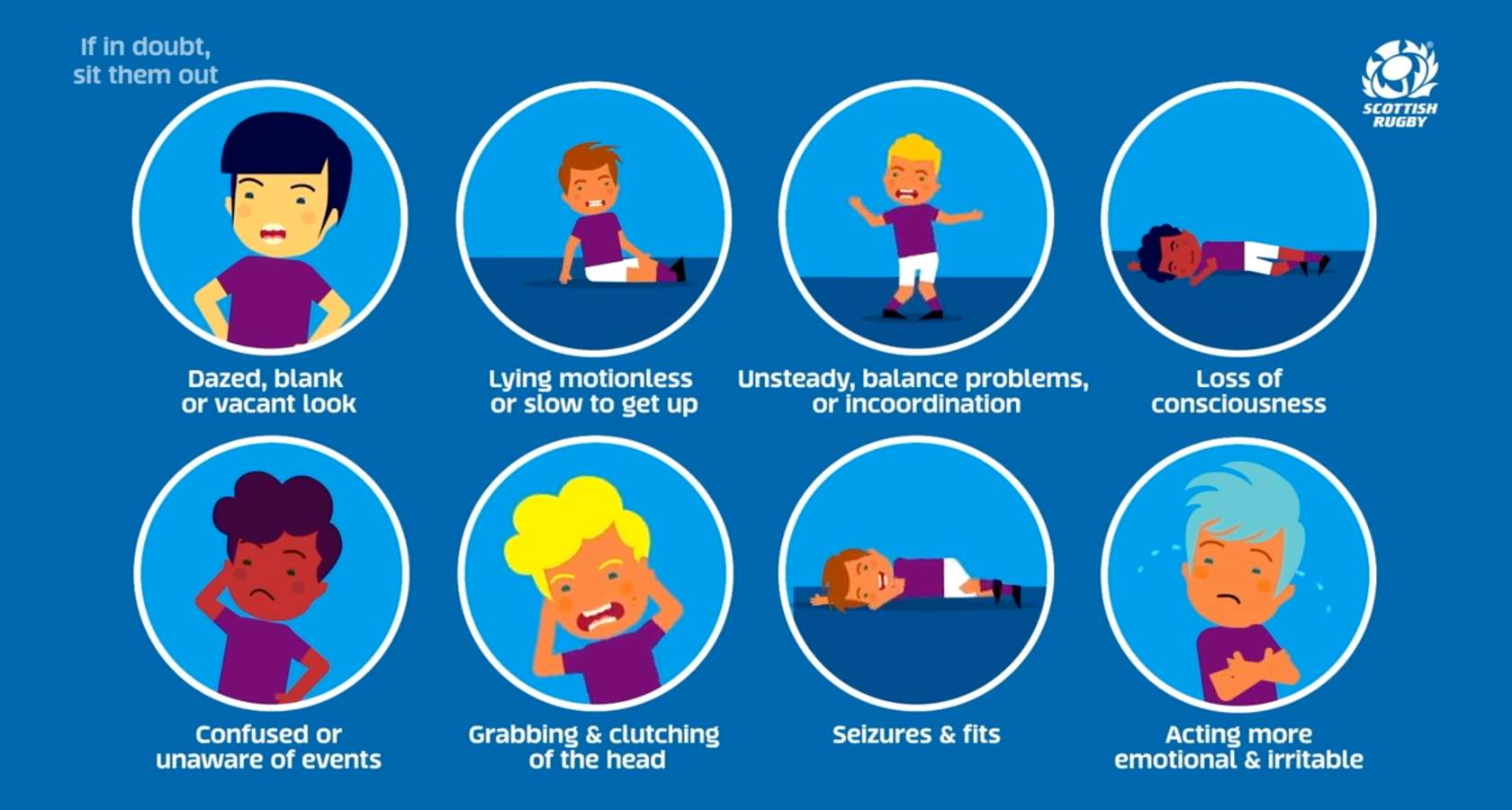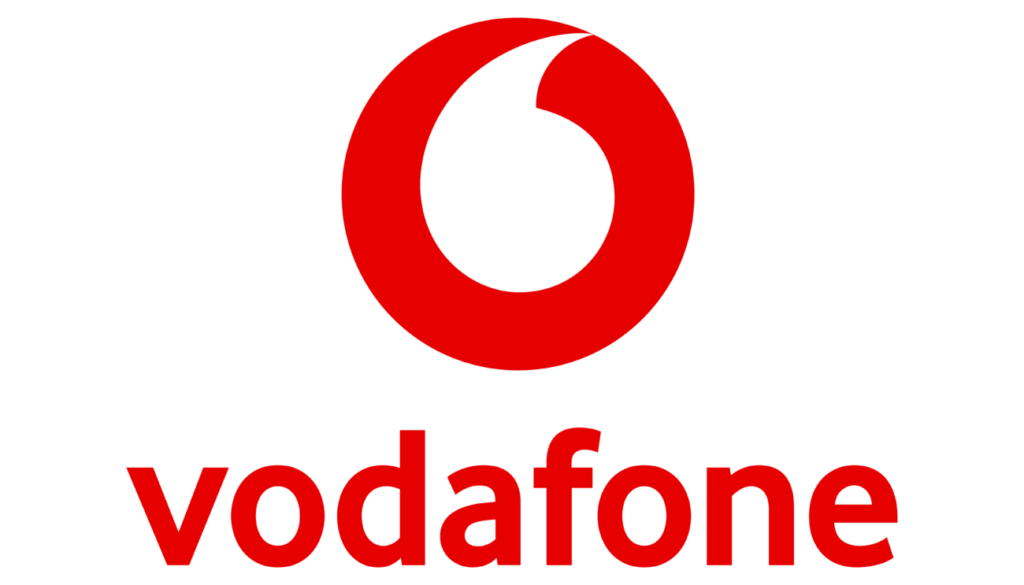Concussion Hub
Welcome to the Concussion Hub, your club's, school's, or society's one-stop-shop for everything you need to know about concussion.
In a fast moving game of rugby, it can be difficult for one individual to have eyes on all players looking for possible concussive episodes.
It important that everyone involved in the game has good knowledge of what concussion is, how to recognise a possible concussion and react appropriately.
Knowledge, understanding and guidance around concussion is an ever evolving space, and Scottish Rugby recommends that players, coaches, match officials, parents and volunteers of our game regularly view this page for the latest information on the matter.
Scottish Rugby is committed to injury prevention and the welfare of all those participating in our sport.
Below you’ll find a series of resources and information to help you better understand concussion.
Scottish Rugby strongly encourages all players, volunteers and parents to undertake our Concussion e-module, launched in July 2023. Click HERE to complete the course.
If you are a physio, first aider, coach, match official or other volunteer at your club or school and you would like your completion of this module to be recorded by Scottish Rugby, then you should log into SCRUMS and access the module from the BROWSE COURSES page. Similarly, if you are considering becoming a First Aider and completing the SCRUMCAPS Level 1 First Aid Course, then you should log in to SCRUMS to complete this module.
Remember, IF IN DOUBT SIT THEM OUT.
General FAQs
-
What is a concussion?
Concussion is a brain injury that upsets how the brain functions.
Your brain is the body’s control centre so upset brain function will result in changes in behaviour, mood and thinking as well as how you feel.
Changes in brain function will vary from brief (minutes only) to longer lasting but the vast majority of symptoms will resolve with time and rest.
Symptoms will get better before the brain has fully recovered so it is important to follow a graduated return to normal daily life (work and education) as well as sport to avoid developing prolonged symptoms or returning before your brain has healed.
-
What do common signs of concussion look like?
The change in brain function after a concussive impact may result in changes in consciousness, balance, and other behaviours that will give the observer visible clues that a concussion has occurred.

-
What are the symptoms of concussion?
A concussive injury is a traumatic brain injury and results in temporary changes to how the brain functions and as a result the symptoms (or what the player feels) can be quite wide ranging.
Symptoms are most usually felt immediately after impact but some may present up to 48 hours later, for example difficulty in concentrating, may only be recognised when the player attempts to return to work or school.
Symptoms can be grouped into symptom type as shown below. There is felt to be age and sex differences in symptom types, however, it’s important to realise that symptoms will vary greatly from player to player as well as between different episodes in the same player and are managed individually.
Physical
Physical symptoms of concussion include: headache, pressure in head, sensitivity to light, sensitivity to noise, dizziness, feeling sick and blurred vision.
Cognitive (thinking)
Symptoms which relate to how you think or process information include: feeling slowed down, difficulty concentrating, difficulty remembering, feeling in a fog or out of body, difficulty completing tasks, poorer problem solving skills, and difficulty sustaining attention.
Emotional
Emotional symptoms affect how you are feeling and these include irritability, feeling nervous or anxious, feeling sadness or down, depression, more emotional, quickly changing moods.
Sleep
Concussion can often have an impact on our sleep pattern while the brain is recovering. This can include difficulty getting to sleep, feeling drowsy or sleeping more, difficulty staying asleep and vivid dreams or nightmares.
Red Flag Symptoms/Signs
The following signs and symptoms can indicate a more serious brain injury and if present the player requires transport to the nearest hospital for urgent medical assistance.
- Severe neck pain
- Double vision
- Weakness or tingling or burning in arms or legs
- Severe or increasing headache
- Seizure (fit)
- Loss of consciousness or becoming increasingly drowsy
- Repeated vomiting
- Increasing confusion or irritability
- Unusual behaviour change
If a neck injury is suspected the player should only be moved by health care professionals with appropriate spinal care training.
-
What causes concussion?
The tackle area is where most concussive episodes occur (approximately 74%).
High tackles are particularly dangerous as both tackler and ball carrier have their heads in the same space. However, concussion can occur in other phases of the game.
Remember any mechanism that causes rapid slowing of a person’s body can cause the brain to twist and sheer and potentially result in concussion.
-
Who is at risk of concussion?
Concussions can happen to anyone. People may be more susceptible to based on their age or gender, or previous concussion history. Read the guidance for more information on additional considerations.
-
What happens if I'm concussed?
There is NO head injury assessment (HIA) within the community game.
All players with a suspected concussion must be removed immediately from play, and not return.
Team mates, coaches and team staff, match officials, managers, administrators, partners and parents/carers who suspect someone may have a concussion MUST do their best to ensure they are removed from play in a safe manner and do not return that day. We all have a part to play.
It’s vital that if you think you have sustained a concussion that you let your coaches, team management and family members know.
It is also advised that the player seeks advice from an onsite health care professional (HCP) or NHS24 (111) for diagnosis and advice, again even if symptoms have quickly gone. This should occur within 24 hours.
All Concussive episodes should be entered onto SCRUMS using the injury reporting tool so that Scottish Rugby has access to as accurate concussion rates as possible.
You will then follow the Graduated Return to Play Protocols. More on this can be found below.
-
When can I start playing and training after a concussion?
Players returning to training and playing must follow the Graduated Return to Play Protocols. These are earliest permissible return to play dates after a suspected concussion.
These protocols are mandatory.
Scottish Rugby’s current concussion policy is under review following updated information and guidance from the Government and the Sport and Recreation Alliance. As such, until a revised policy is published, Scottish Rugby advises all players to follow the Department of Culture, Media and Sport (DCMS) Graduated Return to Play protocols below:
- The earliest a player can return to contact training is Day 14 after the concussion occurred – this is regardless of age or gender.
- The earliest a player can return to a full-contact match is Day 21 after the concussion occurred – this is regardless of age or gender.
In all cases these protocols MUST be followed prior to the players return to play.
Returning to rugby activity requires a staged approach.
The speed at which physical activity and then rugby/sporting activity will vary greatly between individuals.
It is possible to start returning to some sporting activity while still experiencing symptoms, however, these should be mild and the activity should not cause new or worsening symptoms.
Pushing too quickly through a staged return if symptoms are worsened by activity will prolong recovery.
Every concussion is unique and should be managed accordingly.
Support from Scottish Rugby on concussion
-
Tackle Height law trials
On Wednesday 12 April, Scottish Rugby announced that a lower maximum tackle height law trial of below the sternum will be implemented across the community game, beginning in the 2023/24 season, with the aim of reducing the number of concussions in the game.
Click HERE to read the news story published.
To learn more about the Tackle Height law trials, visit Scottish Rugby’s Tackle Height Hub, HERE.
In World Rugby endorsed trials conducted in France and South Africa, lowering the tackle height has been shown to reduce the number of head-on-head contacts and concussions. Lowering the tackle height has also shown positive outcomes regarding increased ball-in-play time and offloading.
- Trials in France resulted in a 64% reduction in head-on-head contacts and a 23% reduction on concussions.
- Research shows that by lowering the tackle height there will be a significant reduction in concussions.
-
Concussion Information Pack & Poster
Scottish Rugby has created a Concussion Information Pack to equip users with easy to access information on concussion.
Click here to access the Concussion Information Pack.
Click here to download our Concussion Poster.
-
Training and education
Rugby Right
Scottish Rugby’s ‘RugbyRight’ course provides information and content around a wide range of player welfare subjects including as concussion management and tackle safety.
The RugbyRight course must be completed by all coaches and match officials, and they are required to complete this course on an annual basis.
Click HERE to find out more about RugbyRight.
Scottish Rugby also offers year-round training and education courses.
Concussion E-learning Module
The new concussion module, making up part of the RugbyRight course, is now available for members of the wider rugby community to complete.
The course includes comprehensive support to help identify and manage concussion, and provides clear information on the graduated return to play protocols at all ages and stages of the game.
Scottish Rugby encourages all players, volunteers and parents to undertake it. Click HERE to complete the course.
If you are a physio, first aider, coach, match official or other volunteer at your club or school and you would like your completion of this module to be recorded by Scottish Rugby, then you should log into SCRUMS and access the module from the ‘Browse Courses’ page.
Similarly, if you are considering becoming a First Aider and completing the SCRUMCAPS Level 1 First Aid Course, then you should log in to SCRUMS to complete this module.
SCRUMCAPS
Scottish Rugby has launched a new SCRUMSCAPS First Aid Level 1 course which will replace the old World Rugby: First Aid in Rugby Level 1 (FAIR) course. The SCRUMSCAPS First Aid Level 1 aims to equip learners with some of the basic skills needed to deliver care until emergency help arrives.
To find out if there is a SCRUMCAPS First Aid Level 1 course happening near you, please visit SCRUMS.
-
Scottish Rugby Concussion Policy
Compliance with Scottish Rugby’s concussion policy is mandatory for all those participating in the game in Scotland.
Scottish Rugby’s current concussion policy is under review following updated information and guidance from the Government and the Sport and Recreation Alliance. As such, until a revised policy is published, Scottish Rugby advises all players to follow the 2024 Scottish Sports Concussion guidelines protocols below.
You can find the current policy, HERE.
-
Player Welfare Action Plan
On Tuesday 1 August, Scottish Rugby launched a ground-breaking plan Player Welfare Action Plan designed to reduce and better manage injuries at all levels of the community game, and to ensure the game remains enjoyable for all.
The Action Plan has a dedicated focus on eight key objectives which put player welfare at the forefront of on and off-pitch activity delivery, utilising an evidence-based approach for decision making.
The Action Plan has been developed by Scottish Rugby’s Welfare Manager, Dr Karen Barclay, Chief Medical Officer, Dr James Robson and Head of Game Development, Neil Graham.
Aligned to World Rugby’s six-point plan for player welfare, key areas the Action Plan addresses include pitch side care, concussion management, age banding, laws, education, research, wellbeing and coaching.
To read the Player Welfare Action Plan and access supporting documents, click HERE.
Downloadable files
Additional Support
Sport and Exercise for Brain Health course from Brain Health Scotland
Expand your knowledge of the benefits of lifelong physical activity for maintaining brain health and reducing disease risk by completing the Sport and Exercise for Brain Health course.
The content of the course has been certified by the CPD Certification Service as conforming to continuing professional development principles. Click HERE for more.
Video
You can also find a video from Scottish Rugby and sportscotland on concussion.




